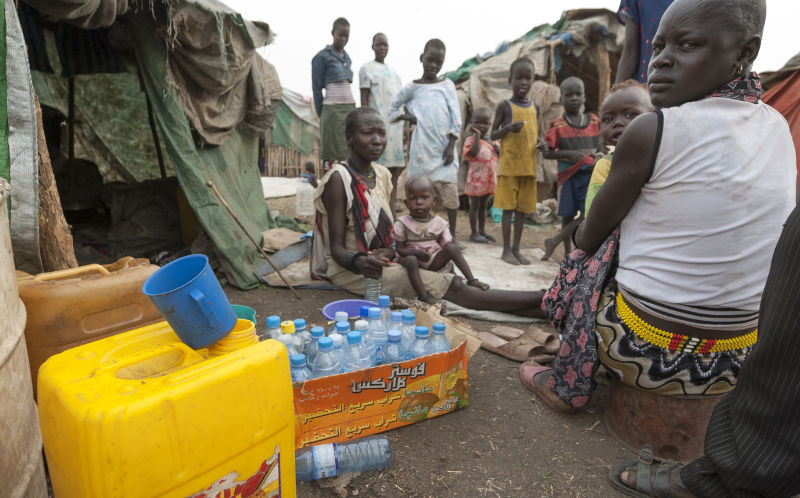Sudanese catastrophe: male egos, womens violation
January 10, 2024
Since April 2023, in a civil war in Sudan, an estimated 10,000 people have been killed, six million internally displaced, over one million are refugees in neighbouring countries, 18 million people are reported by the UN to be food insecure; and where fighting has reached the borders of neighbouring countries, food aid has been suspended.
Describing life in a country of forty nine million people as a catastrophe barely conveys the extent of murder, devastation, fear, disappearance of basic services, the powerlessness experienced disproportionately by women and children.
In a world preoccupied with slaughter in Gaza and Ukraine, catastrophe in Sudan prompts little interest and not much outrage. Yet the source of the Sudanese conflict has links to other conflicts where authoritarianism is rife, democracy eroded, where unscrupulous military groups seek domination and leave behind a trail of starvation disease, refugee crises and the persecution of women.
In Sudan, a state of anomie prevails: no ethics, human rights scorned, a lawlessness dominated by men who like violence and love guns.
Two competing military leaders, General Abdel Fattah Al-Burhan leader of the Sudanese Armed Forces (SAF) and Mohammad Hamdan Dagalo, mostly known as Hemedti, leader of the Rapid Response Force (RSF) are the architects of this state. Although their men have ravaged large parts of the country, attempts by the US and Saudi Arabia to mediate have failed. Two military men seek victory over the other. Each is full of mistrust. Neither keeps their word.
The political and economic context of Sudan sowed the seeds of civil war. After the overthrow of the decades old ruthless dictator Omar al-Bashir, remaining military leaders feigned interest in democracy, but concentrated on becoming commander in chief of the army. The egos of al-Burhan and Hemedti flourished at the expense of the rest of the population, hence the proposition that examining the mind sets of these characters, perhaps placing them on a psychoanalysts couch, should contribute to an understanding of a terrible civil war.
General al-Burhans experience of education, training and government positions is military. Respect for hierarchy, order and control make it difficult for him to entertain the uncertainty of democracy. After his significant role in the overthrow of dictator Bashir, al-Burhan made brief alliance with protesters for democracy, but this experiment with a different way of governing ended with his militarys massacre, torture and rape of protesters, mostly in Khartoum in June 2019.
Still no international leaders drew a line in the sand, no-one stressed the rules of international law, or made attempts to hold an authoritarian bully to account.
Love of power, determination to maintain it through accumulations of gold and other business interests, is the certain trait in al-Burhans rival, Hemedti, leader of the RSF. Originally an opportunist camel trader, Hemedti was appointed by dictator Bashir as a leader of the Arab militia, the Janjaweed, who killed over 300,000 in West Darfur, mostly people of African descent. Moslem Arab prejudice towards people of Christian African animist origins runs deep.
Although Hemedti is promoting himself as a future leader of Sudan, Guardian UK reports that the RSF have no experience in governing and little interest. Hemedti has explained his militarism only perspectives, Anyone who doesnt fight does not have an opinion, a point of view which explains the RSF use of sexual violence as part of a war culture to engender fear.
This Sudanese catastrophe is also a war against women. Decades of gender based discrimination had pushed Sudanese women to join resistance movements and to hope for freedom if democracy arrived. Nine out of ten refugees are women and children who face homelessness, starvation and disease. Reported to have left city homes to escape death or sexual violation violation by Hemedtis soldiers, they say they have also left behind jobs, studies, dreams and hopes for an independent future.
The military swagger of two men, an apparent mine is bigger than yours personal psychology, plus a heavy dose of misogyny, are key forces which disparage democracy and foster violence.
If the international community ignores these ingrained habits, if no-one identifies the consequences of sociopathic conduct, the al-Burhans and Hemedtis of this world -and there are plenty of them- will continue their civil war fights, and to a bitter end.

